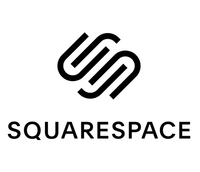How to choose an ecommerce website builder
Building the foundation for your online store success

Ecommerce tools serve the layered needs of modern online businesses. They offer features that basic website builders do not. Generic solutions may seem cheaper at first, but they lack features like payment gateways, inventory management, and tax calculation. This can lead to extra costs as you buy separate tools to cover these gaps.
Choosing the right ecommerce website builder from the get-go means you have everything you need from the start.
For example, Shopify and BigCommerce are designed for PCI-DSS compliance, integrations with PayPal and Apple Pay, and real-time inventory tracking. They provide integrated solutions that save time and reduce complexity. They even support multi-currency transactions, advanced shipping calculators, and offer point-of-sale hardware for hybrid businesses.
Ecommerce platforms also come with niche templates, search engine marketing tools, and customer behavior analytics features. This lets you shift your focus away from backend integrations or coding issues. For beginners, the right ecommerce builder can mean the difference between a successful business and a frustrating experience.
Get 10% off Squarespace with TECHRADAR10
With Squarespace, you get mobile-friendly, niche-specific templates. Enjoy a user-friendly dashboard, 24/7 customer support, free custom domain, SSL security, powerful SEO tools, unlimited bandwidth, Squarespace extensions, premium integrations & blocks (available with business and higher plans), e-commerce & marketing features, and much more. To claim this deal, head over to Squarespace, select your plan, and enter code TECHRADAR10 when checking out.
1. Stay mindful of transaction fees
When you set up your online store, those small transaction fees might seem minor. But don’t be misled — they can take a big chunk out of your profits over time. These fees usually range from 0.5% to 5% of each sale, plus flat fees between $0.10 and $0.49 per transaction, depending on your payment processor.
Let’s break it down: If you use PayPal, you’ll pay 3.49% plus $0.49 per sale. With Stripe, it's 2.9% plus $0.30. These costs add up fast as your business grows. Picture your store processing $50,000 in monthly sales at a 2.9% fee. That’s $1,450 each month or over $17,400 a year just in transaction fees.
You’ll see different types of fees in your ecommerce journey. Payment gateway fees come from processors like PayPal or Stripe. Platform fees might be charged by your ecommerce solution on top of those costs. For instance, Shopify charges transaction fees from 2.4% to 2.9%, plus a fixed amount per sale based on your plan. However, these fees are waived if you use Shopify Payments.
Are you a pro? Subscribe to our newsletter
Sign up to the TechRadar Pro newsletter to get all the top news, opinion, features and guidance your business needs to succeed!
To reduce these costs, consider platforms like BigCommerce that don’t charge extra transaction fees on any plans (though you’ll still pay payment gateway fees). If you sell internationally, be aware that currency conversion fees add more expenses that can impact your margins.
These fees can hit hard if you sell high-volume, low-margin products. They lower your profits and limit what you can invest in growth, competitive pricing, or product improvements.
To manage these costs, look for platforms that waive transaction fees, negotiate better rates with payment processors as your volume rises, or adjust your pricing to cover these expenses.
Some savvy merchants encourage customers to use payment methods with lower fees, like bank transfers, or slightly raise prices to share these costs with customers.
Before choosing a platform, take time to analyze and compare their fee structures carefully — your long-term financial health relies on it.

2. Look for scalable hardware configuration choices
As your online store grows, you need infrastructure that grows with you. Scalable hardware is not just a nice-to-have — it's essential for managing growth and traffic changes. Your ecommerce site requires strong web hosting, flexible server resources, and smooth integration with content delivery networks (CDNs) to perform well as you expand.
Think about busy times like Black Friday or when a popular blog features your product. Without the right infrastructure, your site could slow down or crash. This leads to lost sales and unhappy customers. Even Amazon invests billions in systems to manage heavy traffic during peak shopping times.
Your scalable website should include key technologies for smooth growth. Choose platforms with load balancing systems that spread traffic across multiple servers. This prevents any single point of failure. Microservices architecture separates functions, making your site more resilient and easier to scale as needed.
Cloud platforms like AWS, Microsoft Azure, or Google Cloud offer valuable elastic scalability. They automatically adjust your resources based on real-time traffic needs. This gives you extra capacity when necessary without paying for unused resources during quieter times.
Database optimization is crucial too. Techniques like sharding and replication help manage large datasets, keeping your site responsive as your product catalog and customer base grow.
Walmart's ecommerce transformation shows scalability done right. By investing in flexible infrastructure, they built a platform that can support millions of shoppers during peak times while offering various fulfillment options and international growth.
When choosing ecommerce platforms, think about your long-term needs. Select a solution that supports your vision. Platforms like OroCommerce provide powerful features and remain flexible for enterprise-level demands as you grow.
The right scalable infrastructure not only supports growth but also boosts performance, improves user experience, and drives more conversions.
3. Check for mobile-optimized selling features
If you’re not focusing on mobile shoppers, you’re missing out. Mobile commerce in the U.S. has hit $338 billion; 187.5 million people today shop on their smartphones. This shift in consumer behavior is real, so your business must adapt.
Look at these facts: 85% of U.S. adults own smartphones. 76% make purchases on these devices, and 35% only shop online using mobile devices. With numbers like these, mobile optimization is crucial for reaching modern consumers.
When creating your online store, choose platforms that offer responsive design. Your website should fit different screen sizes seamlessly. It must provide a consistent and attractive experience on iPhones, Androids, or tablets. Navigation should be simple, with clear categories and large buttons easy to tap.
Pay attention to page load speed for mobile users. Studies show that 53% of mobile visitors leave sites that take over three seconds to load. Make sure your platform optimizes images, reduces code bloat, and uses caching to keep pages fast. Many mobile shoppers use cellular connections, not fast WiFi.
Your content strategy should fit mobile users too. Use clear, concise text with readable font sizes. Break information into small sections for easy viewing on smartphones. Product images must be sharp and zoomable, minimizing the need for pinching or scrolling.
Most importantly, make your checkout process smooth for mobile users. Each extra form field or page raises abandonment rates on mobile devices. Platforms that support mobile payments like Apple Pay, Google Pay, and Shop Pay can help reduce hassle by skipping payment entry on small screens.
Think about creating a dedicated mobile app alongside your mobile-optimized site. Apps often have higher conversion rates than mobile websites, with some retailers seeing three times the conversions. With around 60% of U.S. businesses using mobile commerce, neglecting mobile optimization puts you at a disadvantage.
Investing in mobile-friendly design leads to better user engagement, higher conversion rates, and increased revenue in today’s mobile-first e-commerce world.

4. Verify integration with existing business solutions
Connecting your online store to your business tools can change everything. Good ecommerce integration links your website with key systems, like your ERP, inventory management, CRM, and shipping providers. This connection reduces data silos and cuts down on manual work. It creates a unified system where information flows smoothly.
For instance, integrating your ecommerce platform with inventory management tools like NetSuite or Epicor gives you real-time product tracking. This stops the hassle of selling items that are out of stock, which can disappoint customers and lead to canceled orders. Research shows that 34% of businesses face this issue due to poor inventory visibility. Proper integration fixes that.
Order processing becomes much easier when your ecommerce platform works with your ERP system. Instead of entering orders by hand into different systems, integration automates the process. It streamlines order confirmations, tracks shipments, and updates statuses in real time. This saves your team time and cuts down costly data entry errors.
Your customer relationships improve with CRM integration. When your ecommerce platform shares data with your CRM, you get a central hub for customer information. This leads to personalized marketing and better customer service. Your support team can view a customer's purchase history, preferences, and past interactions, allowing them to assist more effectively.5
If you have physical stores as well as an online presence, integrating your POS system is essential. It links your online and offline sales, creating a seamless shopping experience. Customers can buy online and pick up in-store, return online purchases at physical locations, or have store associates order out-of-stock items for delivery.
Shipping and logistics integration makes order fulfillment efficient while keeping customers updated. When your ecommerce platform connects with carriers like UPS, FedEx, or USPS, you can automatically create shipping labels, track packages, and provide real-time delivery updates—all without manual effort.
When choosing ecommerce platforms, check their integration options with your current tools. Platforms with pre-built connectors to popular systems can speed up setup and lower costs. Make a list of your current systems and check compatibility to avoid expensive fixes later.
For more complex needs, look at API-first platforms. They offer flexibility for custom integrations that match your business needs. Platforms like Jitterbit can connect different applications, automating key processes across your tech landscape.
With the right integration, your ecommerce business can grow more easily. It improves speed and accuracy in operations, creating great customer experiences that build loyalty and encourage repeat purchases. A solid integration strategy turns your technology from a mix of separate tools into a unified system that supports lasting growth.

5. Be careful about hidden costs
When comparing ecommerce platforms, the advertised monthly fees can be misleading. The base rate you see is often just the start. Knowing about these hidden costs can help you budget better and avoid surprises later.
Security features often have extra costs that aren’t clear at first. Basic SSL certificates may be included, but enhanced security or PCI compliance usually requires more payment. These are not optional; they are vital for protecting customer data and building trust for online sales.
Payment processing fees can differ greatly between platforms and impact your profits. Some charge more if you use third-party payment gateways instead of their own. For example, with Shopify, if you don’t use Shopify Payments, you’ll face extra transaction fees of 0.5% to 2% on each sale. In contrast, BigCommerce doesn’t charge these fees but may have higher subscription rates for advanced features.
The app ecosystem can also add hidden expenses. While platforms provide basic functions, you’ll likely need paid apps for essential features. A loyalty program may cost $20-50 monthly. Advanced inventory management can add another $100 or more. Email marketing tools and advanced analytics often require separate subscriptions too.
These small additions can turn an affordable platform into a larger investment. A merchant might start with a $29 plan but end up spending over $200 monthly after adding necessary apps and features.
Design costs can surprise new store owners. While platforms promote easy templates, creating a professional look might require hiring a designer. These services can range from a few hundred dollars for minor tweaks to several thousand for extensive design work.
Growing businesses should be aware of upgrade costs. Many platforms limit products, staff accounts, or sales on lower-tier plans. As your business grows, you may need to upgrade to pricier plans, sometimes doubling or tripling your monthly costs.
International sellers face extra costs like currency conversion fees and tax compliance tools. If you plan to sell globally, choose platforms that support multi-currency and international tax calculations without added fees.
Data migration costs can be high if you switch platforms. Some services charge for exporting product data, customer info, and order history, making it costly to leave.
To avoid hidden costs, ask for a full breakdown of all potential fees before choosing a platform. Think about your business model — high-volume sellers should look for platforms with lower transaction fees, while those needing customization should consider development costs.
By understanding the complete cost upfront, you can choose a platform that truly fits your business needs instead of being drawn in by low advertised rates. The cheapest option now may not be the best value in the long run.
Why are ecommerce website builders better than generic ones?
When launching your online store, the platform you choose is crucial. Ecommerce website builders focus on selling, offering features that generic builders can't match without extra plugins or workarounds.
Think about the key functions your store needs: inventory management, payment processing, tax calculation, order tracking, and product catalog organization. Ecommerce platforms include these features right away, all from a single dashboard. This setup saves you time and reduces long-term costs.
The shopping experience for your customers improves with an ecommerce-specific platform. These builders offer templates made for online shopping. They provide product galleries that showcase your items and optimized checkout processes for higher conversion rates. Generic builders may look good for informational sites, but they often require heavy customization for selling.
This difference is even clearer on mobile devices. Ecommerce builders ensure your product pages, shopping carts, and checkout processes work smoothly on smartphones. This is vital as mobile commerce makes up over 40% of online sales. Your customers want a seamless shopping experience on any device.
As your business expands, you’ll value the scalability of ecommerce platforms. They handle larger product catalogs, increased traffic, and complex operations without slowing down. Whether you sell 10 products or 10,000, a solid ecommerce platform grows with you.
Many ecommerce builders include unique marketing tools that generic platforms lack. Features like abandoned cart recovery emails can recover up to 10% of lost sales.
Other tools like product recommendations and flexible discount codes help boost your revenue without needing extra services.
While generic website builders may seem easier at first, ecommerce platforms are a better investment for serious sellers. The initial learning curve might be steeper, but the long-term benefits of a platform designed for ecommerce far outweigh the ease of a general solution.
TechRadar Pro created this content as part of a paid partnership with Squarespace. The content of this article is entirely independent and solely reflects the editorial opinion of TechRadar Pro.

Ritoban Mukherjee is a tech and innovations journalist from West Bengal, India. These days, most of his work revolves around B2B software, such as AI website builders, VoIP platforms, and CRMs, among other things. He has also been published on Tom's Guide, Creative Bloq, IT Pro, Gizmodo, Quartz, and Mental Floss.
You must confirm your public display name before commenting
Please logout and then login again, you will then be prompted to enter your display name.
